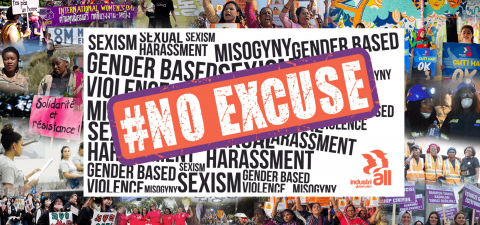13 September, 2023Inclusion of ILO fundamental rights, decent work, Convention 190, informal economy workers, corruption and the creation of social dialogue spaces are some of the provisions which trade unions want included in the policy.
On 6 and 7 September over 300 delegates from 47 African countries participated in the second African Business and Human Rights Forum (ABHRF) in Addis Ababa, Ethiopia. The theme of the forum was: For Africa, from Africa. The forum discussed the draft African Union (AU) business and human rights policy, businesses responsibility to due diligence and access to effective remedies when violations occur.
However the ITUC Global Rights Index 2023, published before the coups in Niger and Gabon, states that workers’ rights violations were increasing with dire implications on business and human rights in Africa.
The Friedrich Ebert Stiftung-African Union (FES AU) cooperation office and the IndustriALL Sub- Saharan Africa (SSA) regional office hosted a workshop prior to the forum which discussed union strategies. The unions, which are affiliated to IndustriALL, BWI, ITF, and IUF are from Kenya, Ghana, Liberia, Nigeria, Tanzania, Uganda, Zambia, and Zimbabwe, and represented workers in the agriculture, building, cement, construction, forestry, mining, oil and gas, textile and garment, transport, wood, and other sectors.
On the critical role of unions, Alex Geiger, FES AU director said:
“The central role of trade unions should be emphasized in the ABHRF and NAP processes. NAPs are important for social dialogue at national level and unions, human rights institutions, and other stakeholders should utilise them to promote human and workers’ rights.”
In closing remarks at the forum, Paule France Ndessomin, IndustriALL regional secretary for SSA said:
“We are demanding the recognition of trade unions by the AU and for their inclusion as key stakeholders in business and human rights as distinct organizations that serve workers’ interests as mandated by their members.Unions are interlocutors on workers’ rights and including them under the broad umbrella of civil society organizations in most instances tend to compromise the labour agenda. Further, the inclusion of ILO standards are important for the AU policy business and human rights as well as the African Continental Free trade Area agreement.”




